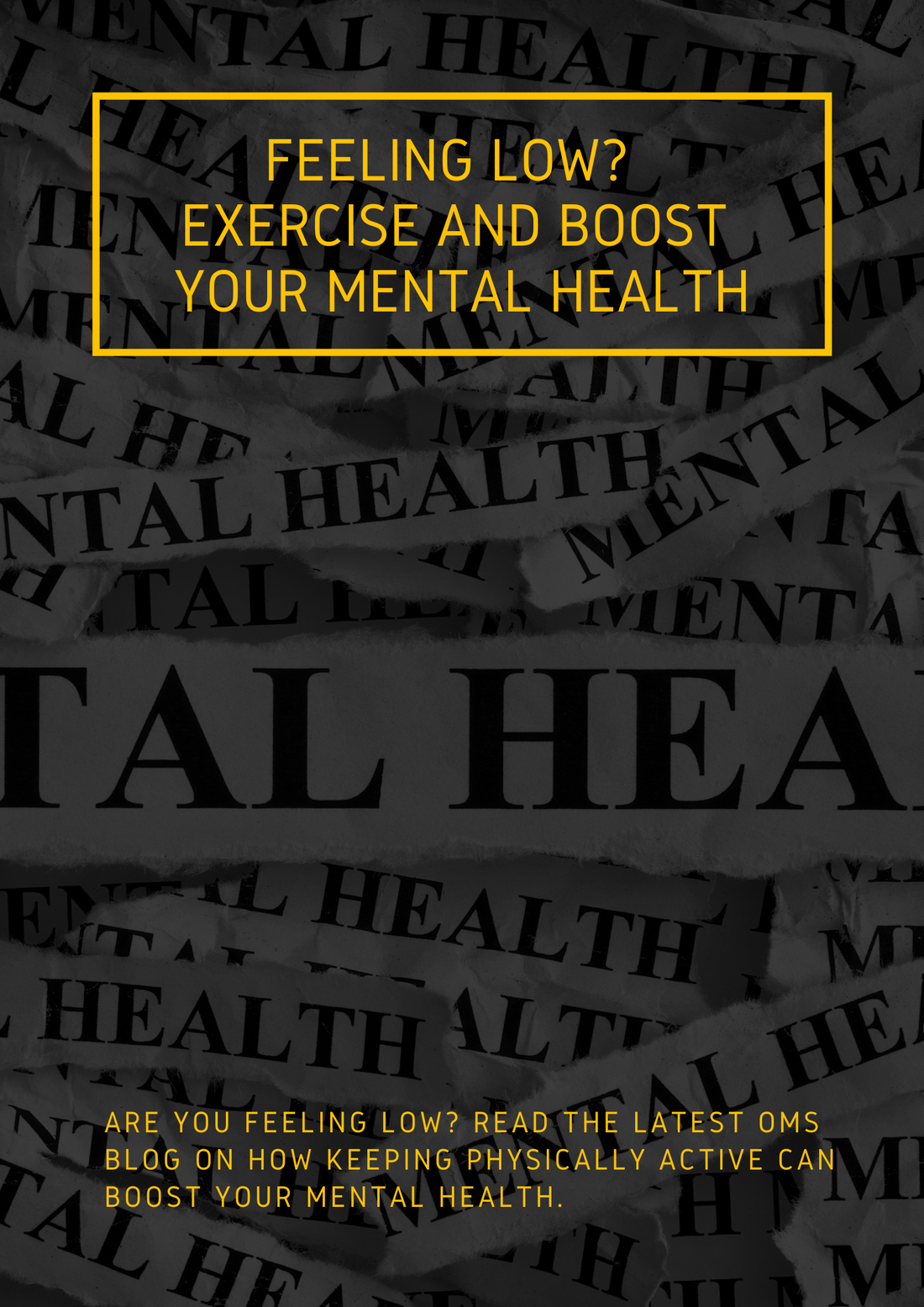
Feeling Low? Exercise and Boost Your Mental Health
I think we all know that exercise isn’t just about muscle, looking good in front of the mirror or wearing that shirt just the right way. It’s a mindset, a motivational tool, and it could save your life.
People who train regularly report a much higher sense of mental wellness, well-being and ability to face the day. They wake up feeling better, they power through those mid-morning sluggish periods, and they feel better – really better – about themselves, their place in the world and their relationships. Makes sense, right? It’s the mental angle that is probably the most important though. Let's dig in a little deeper into that.
There isn’t much research debating the positive link between mental health and exercise. Training changes your stress levels, improves memory, helps sleep patterns and boosts mood. Even a small amount helps – the research shows that as little as 30 minutes a day of moderate exercise can have a quantifiable outcome on our lives, regardless of our age. In fact, the evidence is linked even more strongly as we move past the age of 40.
There are three main benefits of exercise - it reduces depression, it reduces anxiety, and it reduces PTSD.
On the first, depression, we know that exercise is more effective on mild to moderate depression than anxiety medication. These benefits stem from changes in neural patterns in the brain which give us feelings of well being and calm, and the release of endorphins which are chemicals in the brain which are associated with feelings of joy and positivity.
The benefits of anxiety follow a similar line. As well as the characteristics described above, the regularity and depth of breathing in mild to moderate exercise fills the lungs and provides the brain with life-giving oxygen, changing our perception of the world and allowing a circuit breaker to the constant awareness of the worries of the world. Our bodies are inextricably linked to our minds – when our bodies feel a sense of flow, our minds naturally follow.
For those suffering from post-traumatic stress, there can be a tendency to want to avoid the impacts of exercise on the body – shortness of breath etc – as these themselves can be triggered to negativity. Despite this, there are great benefits to pushing through to moderate exercise levels. In one study- https://pubmed.ncbi.nlm.nih.gov/25443996/ a trial of 81 participants was conducted who had a diagnosis of primary PTSD, with an average age of 47.8 years. The exercise involved three, 30-min resistance-training sessions/week and a pedometer-based walking programme, together with the usual care provided to this group which was 84% male and 16% female. The conclusions are worth reading – this study provided the first evidence that an exercise intervention is associated with reduced PTSD and depressive symptoms, reduced waist circumference, and improved sleep quality.
We are living in a time of uncertainty, and taking charge of our lives means taking charge of what works, what doesn’t, and acting on what we know is sensible advice. It doesn’t mean heading out for a 10 mile run after a long layoff. It means a daily walk, 10 push-ups and watching the carbs for the first week while you start to feel the benefits. Sustained moderate exercise works in a number of ways, but it doesn’t work on the couch. So let's embrace the need to change and get out there. There isn’t a single part of your life that will regret it. Stay old man strong.

